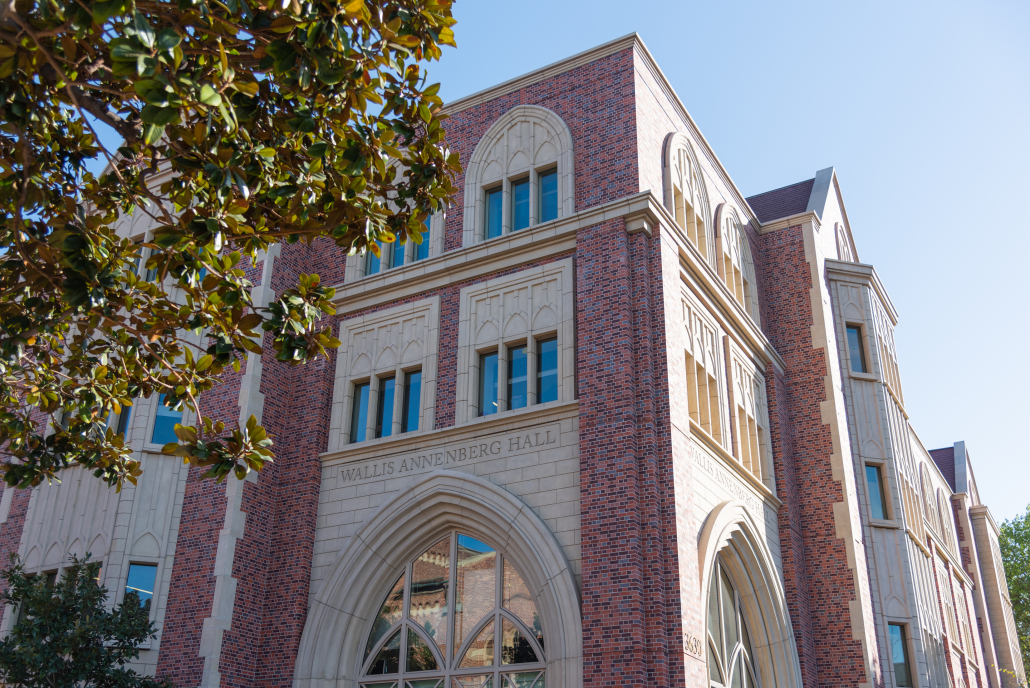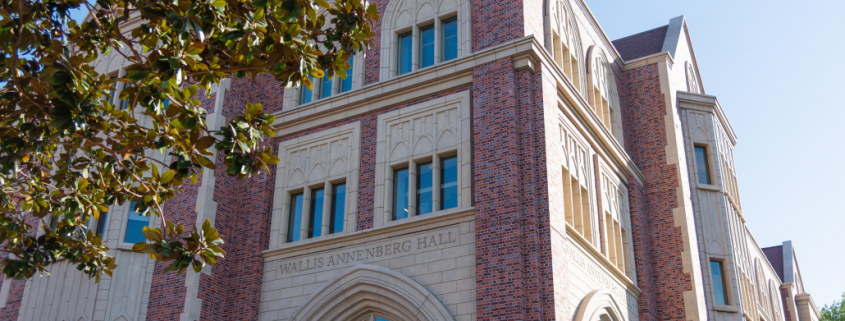Annenberg implements new AAPI journalism course

In the days and weeks following the Atlanta shooting that killed eight women, six of whom were Asian American, May Lee noticed a stark difference in the media coverage of the event. The coverage, Lee said, by mainstream, predominantly white media outlets, versus that of Korean and other Asian outlets was “very different.”
Lee, a journalist and adjunct professor at the USC Annenberg School for Communication and Journalism, said that mainstream outlets, unaware of cultural sensitivities and what Asian Americans were going through “skew[ed] the narrative,” dehumanized the victims through hypersexualization and “show[ed] more sympathy toward the shooter than the actual victims,” as in the case with the sheriff spokesman. On the other hand, Asian and Korean media outlets told a more complete and accurate story, Lee said, because of their awareness of cultural sensitivities.
While the Atlanta shootings are a recent example, Lee said media bias against Asian Americans has persisted throughout American history, citing the media’s pro-government stance during Japanese internment. With the knowledge of those biases in media and the anxiety and fear from the past year, in which hate crimes against Asians rose 114% in Los Angeles from 2019 to 2020 according to the Los Angeles Times, Lee pitched a class that would tackle these issues to Gordon Stables, the director of the School of Journalism. Over the course of just a couple of months, Stables fast-tracked the course, and Lee wrote the curriculum in a few weeks. The class, titled “Asian American History and Journalism,” will be open to students for the upcoming fall semester.
The class “combines the idea of [Asian American and Pacific Islander] history and how journalism played a role in perpetuating stereotypes, misleading the public into thinking certain ways, covering stories in a very biased way just because of the area, and then also because of the lack of knowledge when it came to different Asian cultures in America,” Lee said.
In addition to learning about AAPI history, a subject that many students have not been taught in schools, students will examine the ways in which coverage from AAPI outlets differ from mainstream outlets, the ways that media has historically misrepresented the AAPI community, cultural sensitivities and past AAPI social movements. The number one goal of the course, Lee said, is that “students will develop empathy.”
“Empathy is so powerful, but empathy only comes when you are better educated, better informed and more aware of a situation,” Lee said. “After [students] go through [this course] and learn a lot about AAPI history and how our stories and narratives have been skewed by the media, then I hope that there’s going to be a lot more empathy and understanding, and they’ll become much better journalists.”
Lee grew up in Dayton, Ohio in the 1970s and 80s as the only Asian kid in town aside from her older brother. She often felt like an outsider and less than, she said, and was exposed early on to the “idea of being a foreigner.”
“Being Korean American, being Asian American was not something I was proud of or made to feel proud of,” Lee said. “I wanted to be white because that’s all I knew. I wanted to have blonde hair, I wanted to have blue eyes. I wanted to change my name to Mary because that sounded more white … Instead of being proud of [my identity], I was trying to dismiss it and push it away.”
Later on in Lee’s life, as she found her first journalism job and navigated her career, she experienced racism both while on the job and within the industry itself. She plans to use those experiences in the course, viewing sharing her own stories as a way to build empathy and hopes that students will be able to have open, and potentially painful or uncomfortable, conversations.
“I hope that I will be able to create a class where people will really want to dig deep, and maybe also question themselves about our own biases, our own microaggressions, our own stereotypes that we’ve carried for a long time, not even aware of it,” Lee said.
The new course is being introduced now as journalism schools across the country are experiencing an evolving definition of what objectivity is in journalism, Stables said in an interview with the Daily Trojan.
“Journalism schools are understanding that the core value of objectivity is providing high-quality information. It’s not trying to pretend that everyone comes from the same starting point,” Stables said. “So that subtle movement has meant a lot of our efforts and interventions [are] about saying, ‘How do you better report on a community that retains the truth-telling part of objectivity, without the false notion that everyone is the same?’”
Students will learn about the long historical discrimination against Asian Americans in the United States, including the 1882 Chinese Exclusion Act, Japanese internment, the Atlanta shootings and the murder of Vincent Chin, a Chinese American man who was beaten to death by two white men. In addition to learning about the history itself, students will examine the media coverage that followed the events, deconstructing how media bias against Asian Americans shaped public opinion.
Nathan Hyun, a rising senior majoring in journalism and co-president of the USC chapter of the Asian American Journalists Association, said he often noticed that he is one of few Asian Americans, especially Asian American men, in the Annenberg School — and the media industry as a whole. Because of that awareness, Hyun said he is excited by the new course and other steps that Annenberg has recently taken to address anti-Asian racism.
“I definitely think it was an area, a topic, that Annenberg lacked, even the last couple years. But I’m really encouraged, and I’m really excited to see what more the University and what Annenberg can do moving forward,” Hyun said.
At other points in history, Lee said there have been “little waves” of focus on Asian American issues. Now, she hopes the movement will last.
“This time the whole idea of the model minority myth is just being shattered, and a lot of Asians, especially younger Asians are saying ‘No, we’re not the model minority, we’re not going to stay silent. We’re going to speak up, speak out and really engage and become very much like the activist movement,’” Lee said. “That’s why I’m very hopeful that the changes will continue.”

